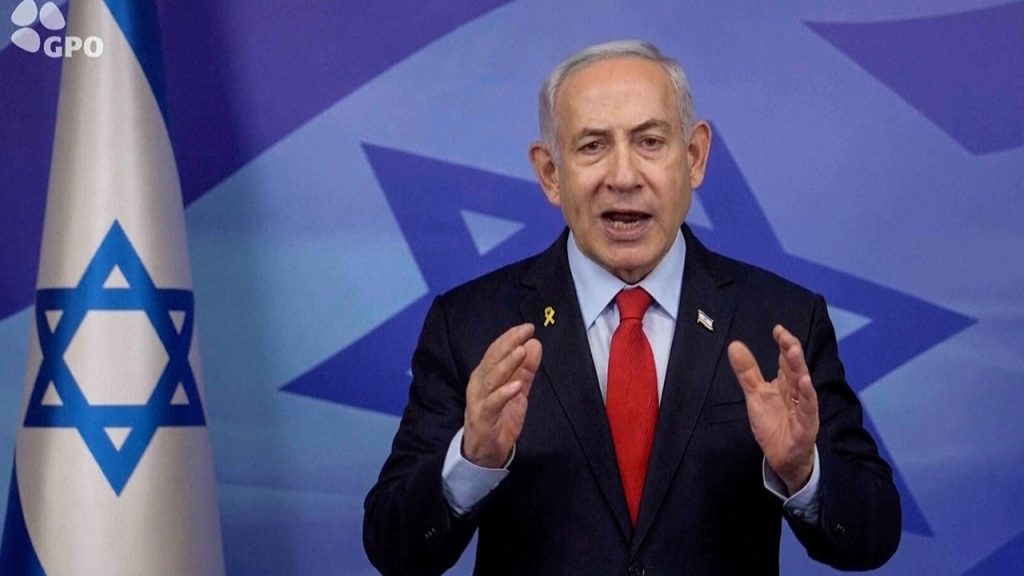Paragraph 1: Netanyahu’s Prostate Surgery and Hospital Discharge
Israeli Prime Minister Benjamin Netanyahu underwent prostate surgery at Hadassah Ein Kerem Hospital in Jerusalem. Following the procedure, his office released a statement on the social media platform X (formerly Twitter), confirming the successful completion of the surgery and Netanyahu’s discharge from the hospital. The 75-year-old prime minister also personally announced his departure from the hospital via X, assuring the public of his well-being. The statement emphasized that Netanyahu was in good condition and fully conscious post-surgery. While the specific nature of the prostate surgery wasn’t detailed in the initial reports, it marked a significant health event for the Israeli leader.
Paragraph 2: Potential Health Implications and Recovery Process
Prostate surgery, while common, can encompass various procedures depending on the specific condition being addressed. These procedures range from minimally invasive techniques like transurethral resection of the prostate (TURP) to more extensive interventions like radical prostatectomy. Each procedure carries its own set of potential risks and recovery timelines. TURP, often used for benign prostatic hyperplasia (BPH), involves removing excess prostate tissue blocking urine flow. Radical prostatectomy, typically performed for prostate cancer, involves removing the entire prostate gland. Post-surgery recovery can involve managing pain, potential urinary complications, and gradually resuming normal activities. Given Netanyahu’s age, his recovery process would likely be closely monitored by medical professionals.
Paragraph 3: Netanyahu’s Defiance of Medical Advice and Parliamentary Appearance
Despite undergoing surgery and presumably requiring rest, Prime Minister Netanyahu made a notable appearance at the Israeli parliament, defying medical recommendations. This decision underscored his commitment to his political duties and his determination to remain actively engaged in government affairs. However, it also raised concerns about his prioritizing political activity over his health and potentially hindering his recovery. The act of attending parliament so soon after surgery could be interpreted as a display of strength and resilience, but also as a potentially risky move that could compromise his well-being.
Paragraph 4: The Intersection of Health, Politics, and Public Perception
Netanyahu’s health situation and his subsequent actions brought into sharp focus the intersection of a leader’s private health and public responsibilities. The decision to undergo surgery, while a personal matter, inevitably becomes a subject of public interest when it concerns a head of state. The transparency surrounding the procedure and Netanyahu’s post-surgery actions, including his defiance of medical advice, were subject to public scrutiny and interpretation. These actions could be perceived as demonstrating dedication to his role, or alternatively, as prioritizing political optics over personal health.
Paragraph 5: Speculation and Media Coverage of Netanyahu’s Health
The news of Netanyahu’s surgery and his subsequent parliamentary appearance generated considerable media attention and speculation. News outlets reported on the procedure, his condition, and his decision to attend parliament against medical advice. Analysts and commentators weighed in on the potential implications of his health on his political future and the stability of the government. The media coverage highlighted the intense public interest in the health of political leaders and the potential impact on national affairs. The situation also underscored the role of social media in disseminating information and shaping public discourse surrounding such events.
Paragraph 6: The Broader Context of Netanyahu’s Leadership
Netanyahu’s health episode unfolded against the backdrop of his ongoing leadership and the political landscape in Israel. His actions, including his decision to defy medical advice, were viewed in the context of his political style and his approach to governance. The events also highlighted the pressures and demands faced by political leaders, and the challenges of balancing personal health with the responsibilities of office. The episode served as a reminder of the human element in political leadership, and the potential impact of health issues on the trajectory of political events.


